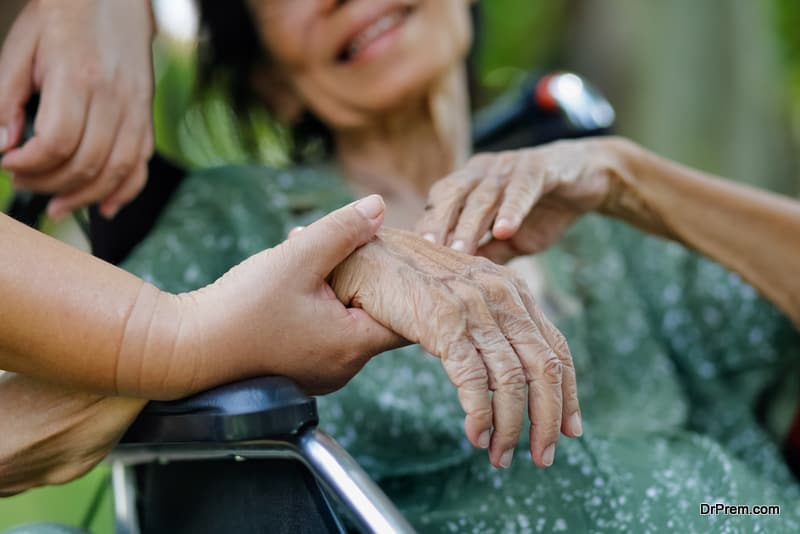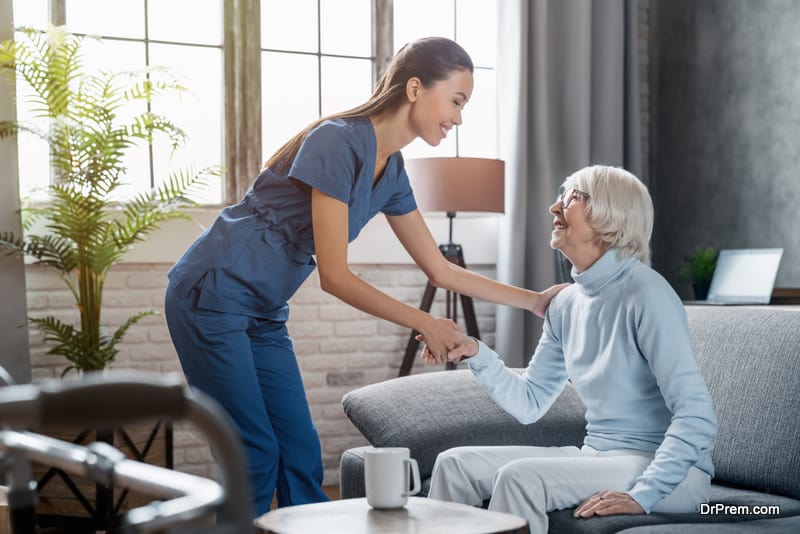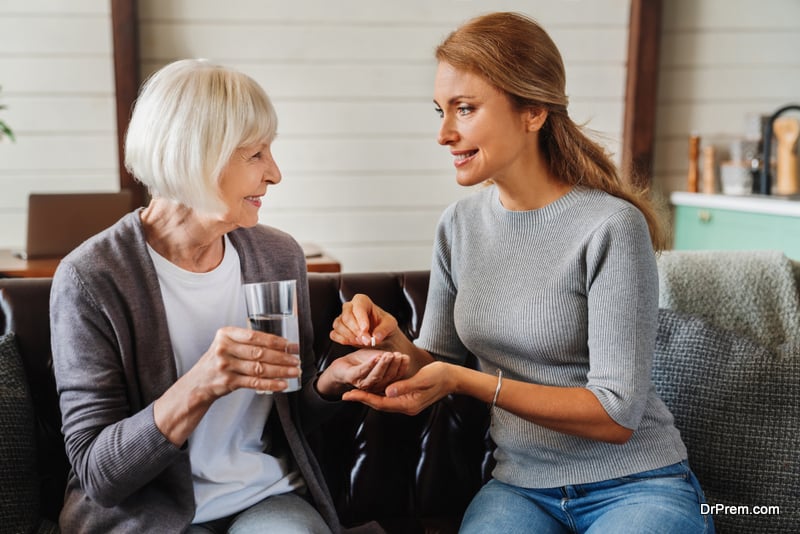Parents and grandparents are some of the most treasured people in our lives, to whom many people owe their successes and accomplishments. While these amazing individuals spend the majority of their younger years taking care of us, as they get older the responsibility of taking care of them often falls on our shoulders. Having an elderly parent or grandparent to look after can be a source of great worry and stress, especially if they have various health conditions that require special care.
If you have an elderly loved one in your life, taking care of them as they age can be a concern that lingers on the forefront of your mind. It’s understandable to have uncertainties about how to proceed, especially if you have no prior experience in this arena. Whether you’re a seasoned caregiver, or this is your first time considering this option, here are five tips to ensure they stay happy and healthy well into their advanced years.
1. Try your best to visit often

While many elderly caregivers would prefer to stay by their loved one’s side 24/7, the reality is that this is rarely possible. Life goes on no matter your obligations, and often that means that you can’t visit your elderly loved ones as often as you’d like. Visiting elderly loved ones often is one of the most beneficial ways you can help them, however, so you should always try your best to carve out the time to pay your elderly loved one a visit.
Making the loved ones in your life a priority is important when scheduling out your time. Although it might take some sacrifices in leisure and personal time, elderly loved ones appreciate visits more than you could perhaps even imagine. That being said, it’s also important that you take time for yourself and your mental health, as well. Remember, you can’t help your loved ones if you don’t help yourself first.
2. Check that they’re taking medications
One of the most unfortunate effects of old age is the degradation of various bodily functions, including physical health, eyesight and cognitive abilities. This typically results in needing to take a variety of medications to ensure bodily functions remain healthy and consistent, as well as to treat various illnesses that become more common in old age.
For many elderly individuals, it becomes more difficult to read and remember the labels on pills and other medications. Concentration and cognitive processing also suffer in old age. It’s important to check and make sure your elderly loved ones are taking the correct medications at the prescribed doses and intervals. You should verify that your elderly loved ones are maintaining their health routine regularly as well.
3. Consider hiring live-in help

As mentioned above, while many people would love nothing more than to take care of their elderly loved ones all the time, the fact of the matter is that most individuals have the majority of their time occupied with work, as well as family care and other obligations. Yet, sometimes elderly loved ones begin to need someone at home with them as they age and lose many of the abilities they had when they were younger.
Hiring at home help can have a variety of benefits for both you and your elderly loved ones, taking a load off your mind and ensuring that your elderly loved one has help available to them whenever they need it. You should also consider looking into home care; Manhattan, Seattle, Miami and other major metropolitan areas can offer fantastic options that may be best for your situation.
4. Make their home safer for them
As individuals age, many aspects of their homes may become dangerous and hap hazardous due to the constraints of age. A variety of modifications can be made to your elderly loved one’s home to make it safer for them, including accessibility renovations such as installing a ramp if your elderly loved one uses a wheelchair or walker, or just so that they don’t have to climb stairs.
Adding handrails in the bathroom near the toilet and shower where the ground tends to get wet can also increase safety, as falls tend to have more severe effects for elderly individuals. Ample lighting throughout the house is another beneficial safety addition, since eyesight begins to diminish with old age. Furthermore, you should make sure that smoke and carbon monoxide detectors in the house are up to date and functional. These modifications and checks will help ensure your elderly loved one is safe at home.
5. Don’t be afraid to ask questions

Many caretakers of elderly loved ones shy away from asking potentially embarrassing questions about their elderly loved one’s health or financial situation. While understandable, this information is necessary to ensure your elderly loved one’s health and safety in the long term. Not only should you take care to be sensitive and appropriate when asking questions, but also ensure that you have all the information you need to guarantee your elderly loved one’s health and safety in the future.
While taking care of an elderly loved one can be very anxiety-inducing, taking steps to make sure your elderly loved one is safe and happy is extremely beneficial for both your own mental health and the health of your loved one. At the end of the day, your elderly loved one will be very grateful for your attention and devotion to their wellbeing, and your bond with them will be stronger than ever. And by following these five tips, you can ideally make taking care of an elderly loved one a little less stressful.
Article Submitted By Community Writer




